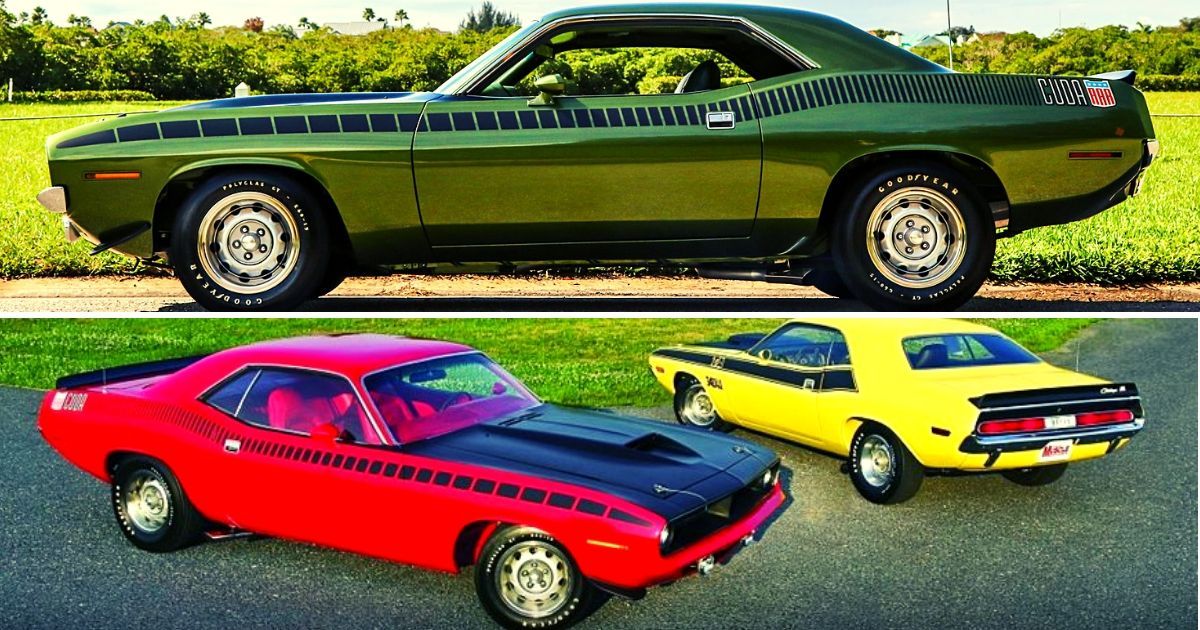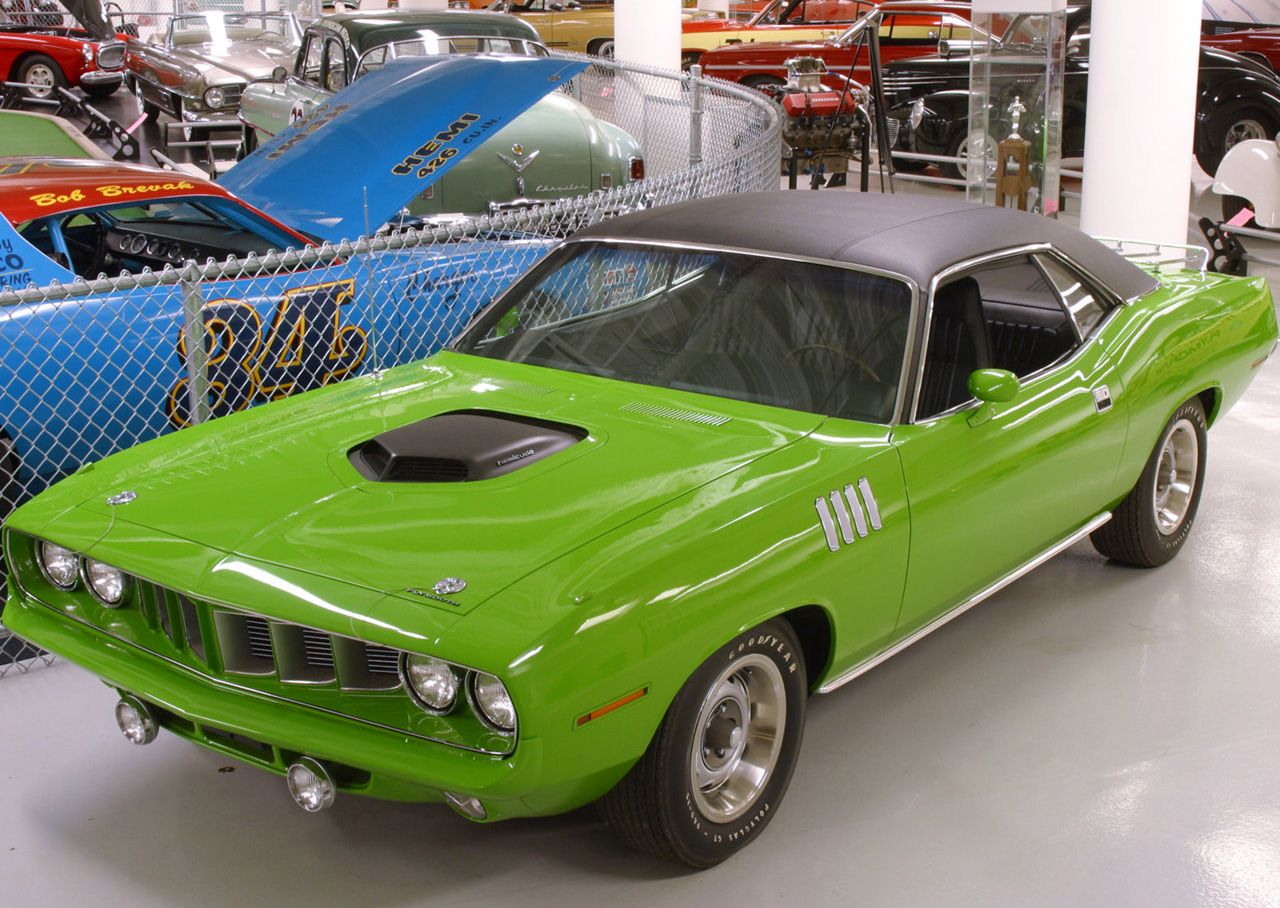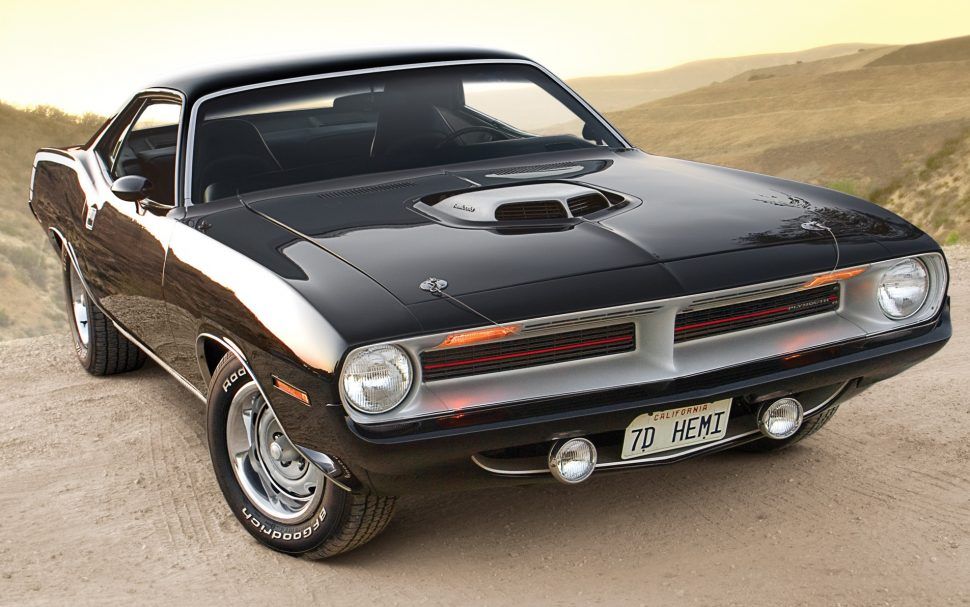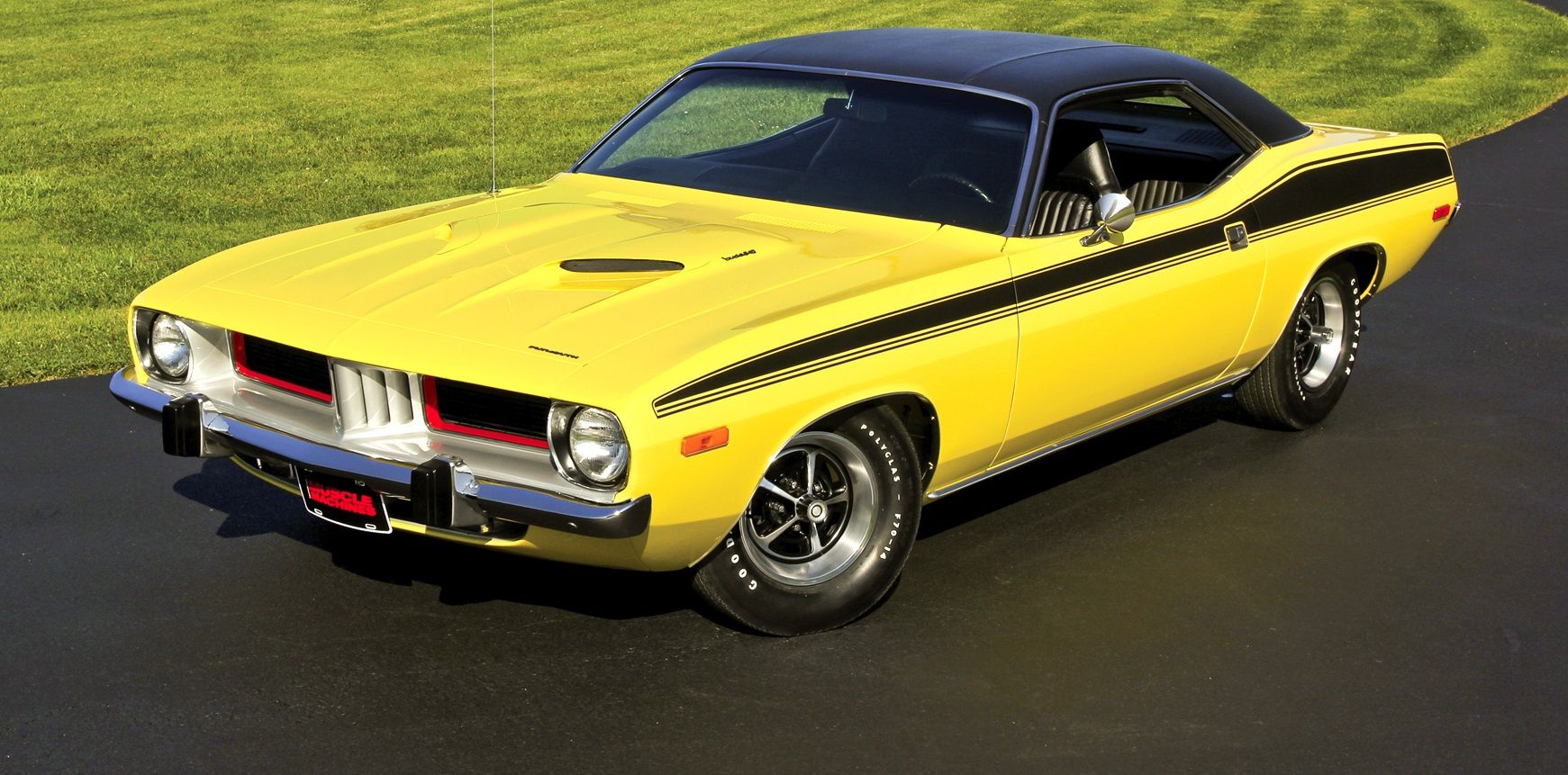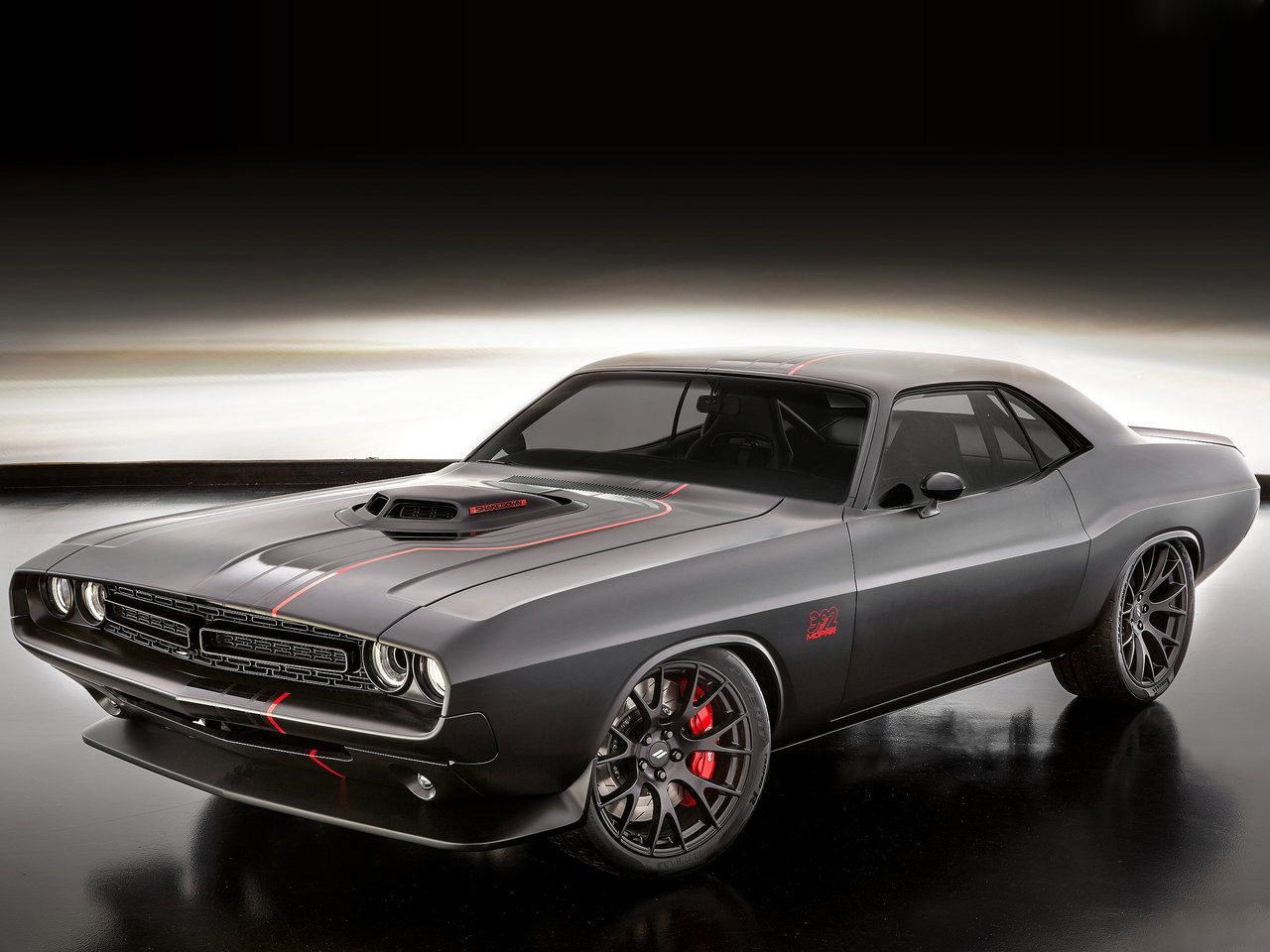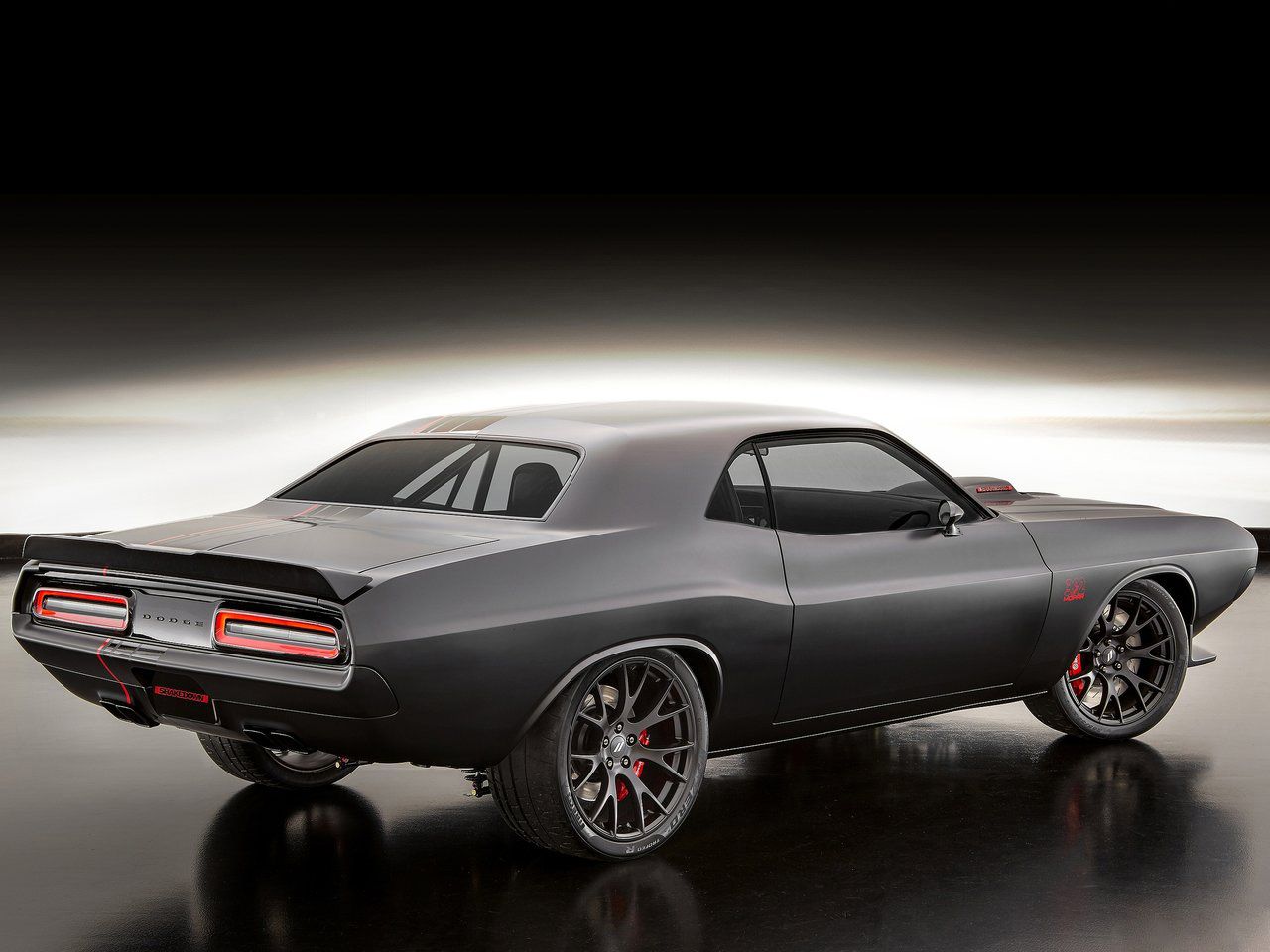History is rife with examples of meteoric rises and heart-sinking falls, and not many stories illustrate that better than the tale of the American muscle car. What started in the 60s as a revolution found itself stuck in the mud by the 70s as an oil crisis and new regulations put a muzzle on Detroit’s horsepower wars. But in the late 2000s, it seemed as if a second golden era had arrived as one by one, the heroes of the 60s were resurrected.
Within a year of Ford releasing the eye-catchingly retro 5th-gen Mustang in 2004, Chevy and Dodge had readied retro Camaro and Challenger concepts of their own. Then in 2007, a year before the Challenger went on sale and two before the Camaro hit dealerships, a rumor that Dodge would revive the Plymouth Barracuda emerged. But 13 years and two recessions later and we have yet to see any evidence of that coming true.
So what gives? Why has Dodge remained so quiet about the Barracuda for more than a decade? And if the Barracuda is reincarnated, would it come back as the muscle car we all hoped it would be?
The Basics
Barracuda fans have a few solid arguments pointing to why Dodge might revive their favorite muscle car. For one, the current Challenger is 12 years old, making it as good as ancient in the car world. Given that Challenger sales have been on an upward trend since its re-release, it’s safe to assume that Dodge is looking at how to replace the coupe without ruining sales figures.
The problem is that the platform underpinning the current Challenger is a quarter century old, and the most viable alternative is Fiat Chrysler’s Giorgio platform, which underpins the Alfa Romeo Giulia and Stelvio. Unfortunately, the new platform may be too sophisticated to handle the Challenger’s old school characteristics, like its inefficient muscle car dimensions and an engine bay that can fit a Demon motor. So if a Giorgio-based Challenger becomes too different in character, Dodge could simply tack on the Barracuda name and treat it like an entirely new breed of muscle car.
It May Never Come
Thing is, that’s not likely to happen. Dodge has a good thing going with the current Challenger because it’s managed to keep demand strong without plowing huge amounts of cash into a redesign like Ford and Chevy have. If the current recession doesn’t ruin that momentum, Dodge will likely do its best to preserve the Challenger as it is, name included, even as it migrates to a new platform.
And if Dodge keeps the Challenger, there will simply be no room for the Barracuda given that we live in an era where crossovers are dominating the market and where automakers are cutting coupes and sedans out of their lineups. If Dodge does keep the Challenger, the Barracuda could feasibly come to life as a convertible version of the next-gen Challenger, but in that case it would be a Barracuda only in name.
It Could Be Electric
Another reason Dodge could be staying quiet about the Barracuda is that it plans to give the name to a future EV, much like GM is doing with the Hummer. As legacy automakers struggle to make EVs more palatable to the public, Dodge could feasibly apply the Barracuda name to an upcoming EV in order to lure customers...as long as it includes plenty of performance and keeps some styling callbacks to the original.
We’d even go out on a limb and say that a Barracuda EV would replace the Challenger as an all-electric muscle coupe with retro styling and a Giorgio platform (which has been revamped to allow for alternative drivetrains), but the fact Ford used the Mustang's name for the Mach-E CUV has paved the way for anything to happen.
It Could Be An SUV
While the thought of a Barracuda EV might make the diehard fans cringe, there’s an even more horrifying possibility for Dodge’s iconic nameplate: a Barracuda SUV. It sounds absurd on paper, but it’s not outside the realm of possibility, especially in a time where Lamborghini, Maserati, Aston Martin, and even Ferrari either have or are working on an SUV. As we mentioned before, Ford already did it with the Mustang. Even Mitsubishi has revived the Eclipse, the same car that was bedroom wall poster material in the 90s, as an utterly lame SUV that’s since been forgotten.
Looking Ahead
The case for the modern Barracuda is a case of dreams running up against reality. While it’d be great to see the Barracuda and Challenger both reminding the Mustang and Camaro what a muscle car is supposed to be, reality paints a bleak outlook. The chances of FCA (in post PSA merger mode no less) building a two-door muscle car powered by a V8 and calling it a Barracuda are not very high.
Even before this pandemic-induced recession sucked cash out of consumer and automaker coffers, the Barracuda’s prospect is hurt by the Challenger’s success. There is, however, always the hope that FCA will emerge from this recession as a winner. And if that happens, then maybe we can afford some wishful thinking again.

